These gaming monitors balance beautiful resolution and color with high Hz - Android
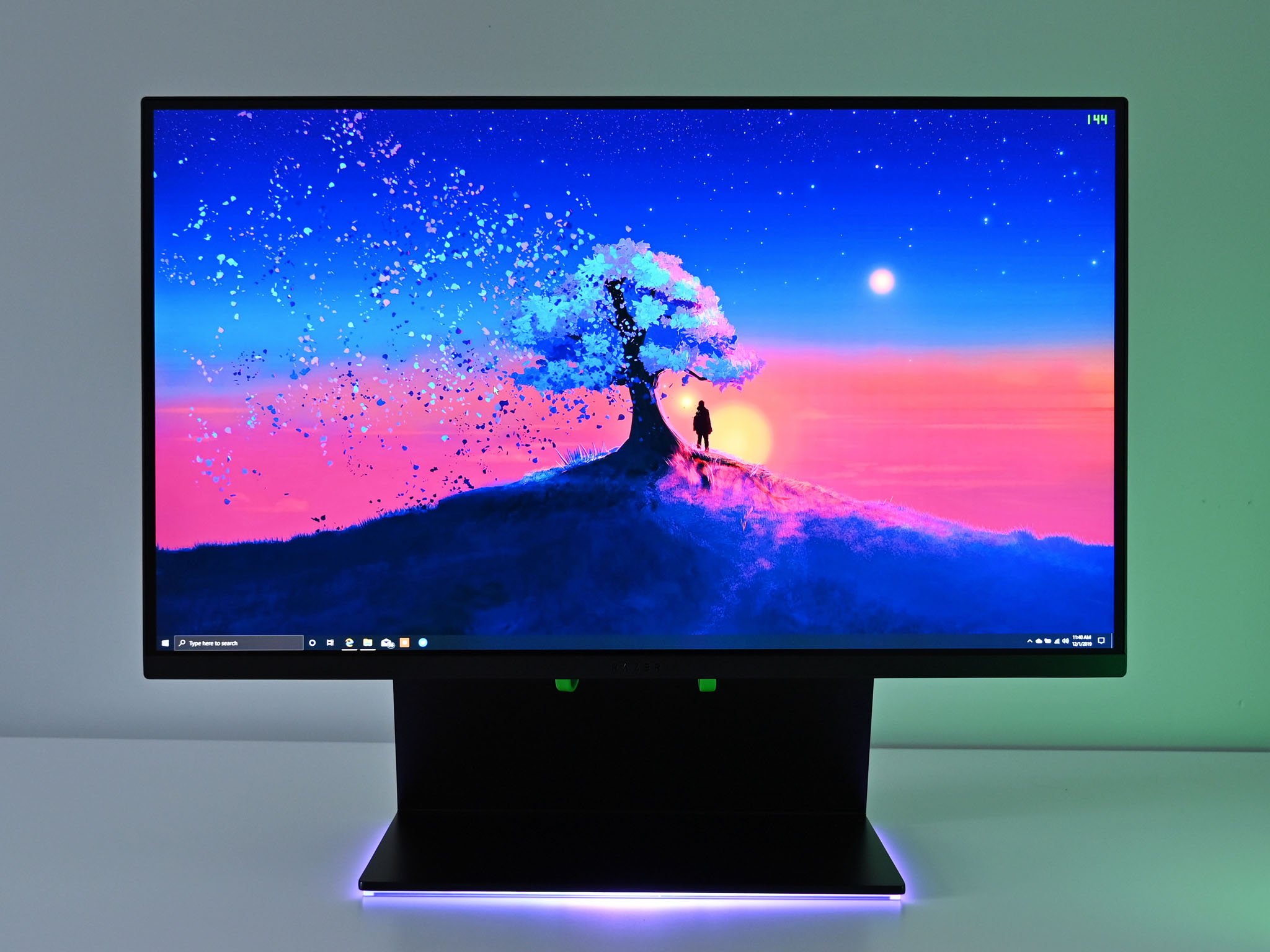
Defining the best gaming monitor for your PC gaming setup varies upon your budget, the type of games you play, and your level of competitiveness. You can find a large 4K monitor with a high refresh rate for over a grand, but most gamers have to choose between either high refresh rates for online gaming or high resolution for maximum graphical performance. Thankfully, a solid QHD monitor like the Razer Raptor 27 hits the sweet spot between the two, but we have several alternatives below for more specialized needs.
Best Overall: Razer Raptor 27
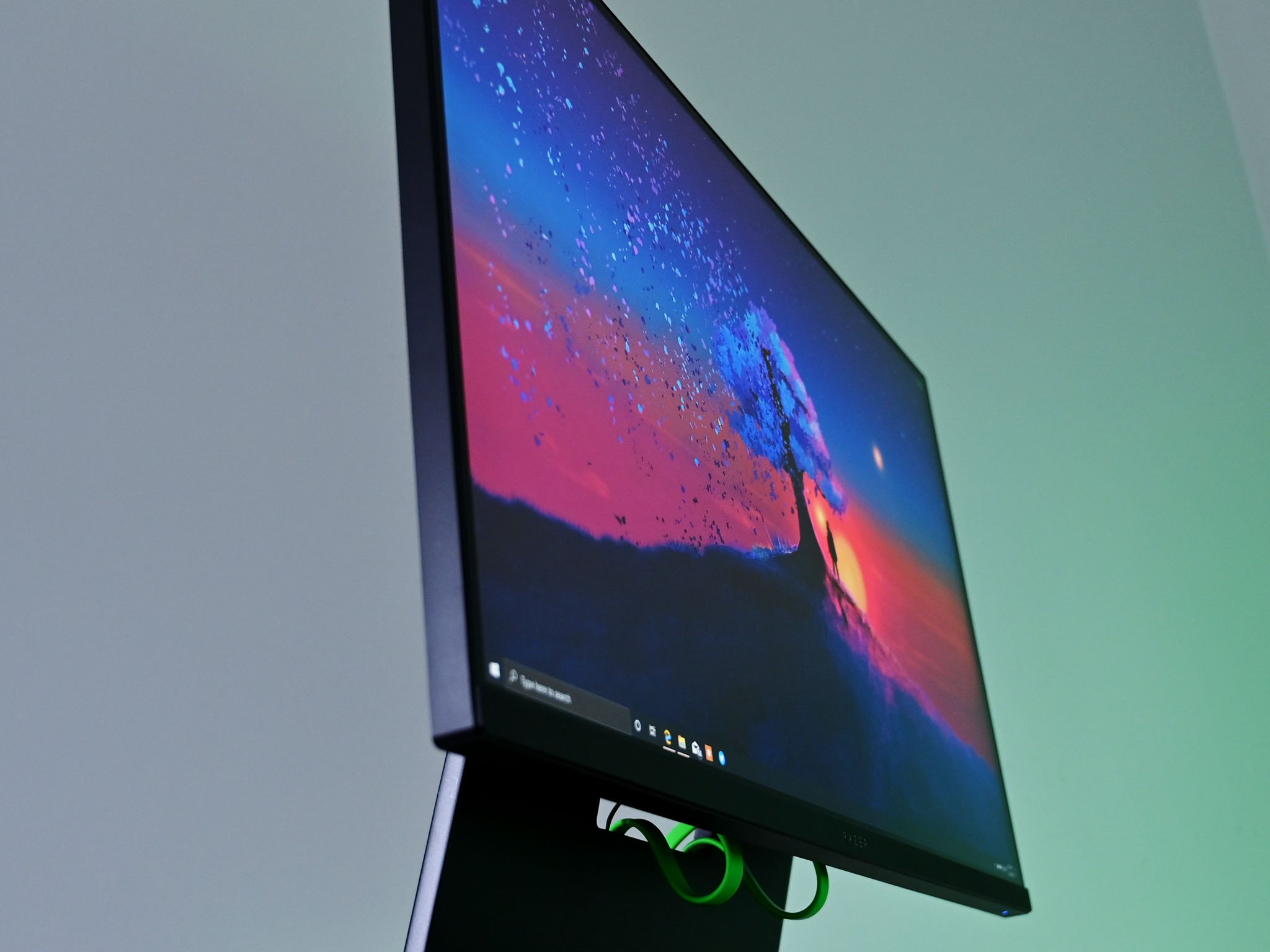
While discussing the Razer Raptor 27, we'll introduce all of the terms and features to look out for in a gaming monitor, as it basically has everything you can ask for. Its 144Hz refresh rate means the Raptor can refresh itself 144 times per second, making the gameplay smoother and ensuring your high FPS performance translates to the monitor. With a 1ms response time, your mouse movements will immediately translate onto the screen with no distracting input lag. Its 178-degree IPS viewing angle means the monitor looks just as bright from the side as it does from the front, and its 95% DCI-P3 color gamut means that Razer doesn't sacrifice color accuracy for performance, as many monitors do.
We chose the Razer Raptor 27, our top QHD (2560x1440) display, as our best overall pick because it strikes a great balance between features and price. While 4K monitors struggle to rise above 60Hz and 1080p monitors can't make current-gen games look as pretty as they should, 2K monitors like the Raptor give a fast performance without sacrificing aesthetics. If you also use it for non-gaming purposes like watching movies or doing creative work, you'll appreciate the wide color gamut, though its 350 nits of brightness are only average.
Some buyers may not like Razer's proprietary cable system for simplifying and hiding your wires, and its HDR400 isn't true HDR. But these are small concerns matched up against overall excellent performance if the price tag doesn't scare you off.
Pros:
- Superb color accuracy
- IPS QHD display
- FreeSync and G-Sync support
- 144Hz
- Superior brightness and contrast in HDR400 mode
- Joystick for adjusting settings
Cons:
- Fairly expensive
- Proprietary cable system
- HDR400 isn't true HDR
Best Overall
Razer Raptor 27" Gaming Monitor

- $697 at Amazon
- $600 at Walmart
- $700 at Newegg
Excellent specs for work and play
The Razer Raptor 27 is a bright and fast display that works just as well for editing work as for esports, making it our top pick.
Runner-Up: LG 27GL850-B
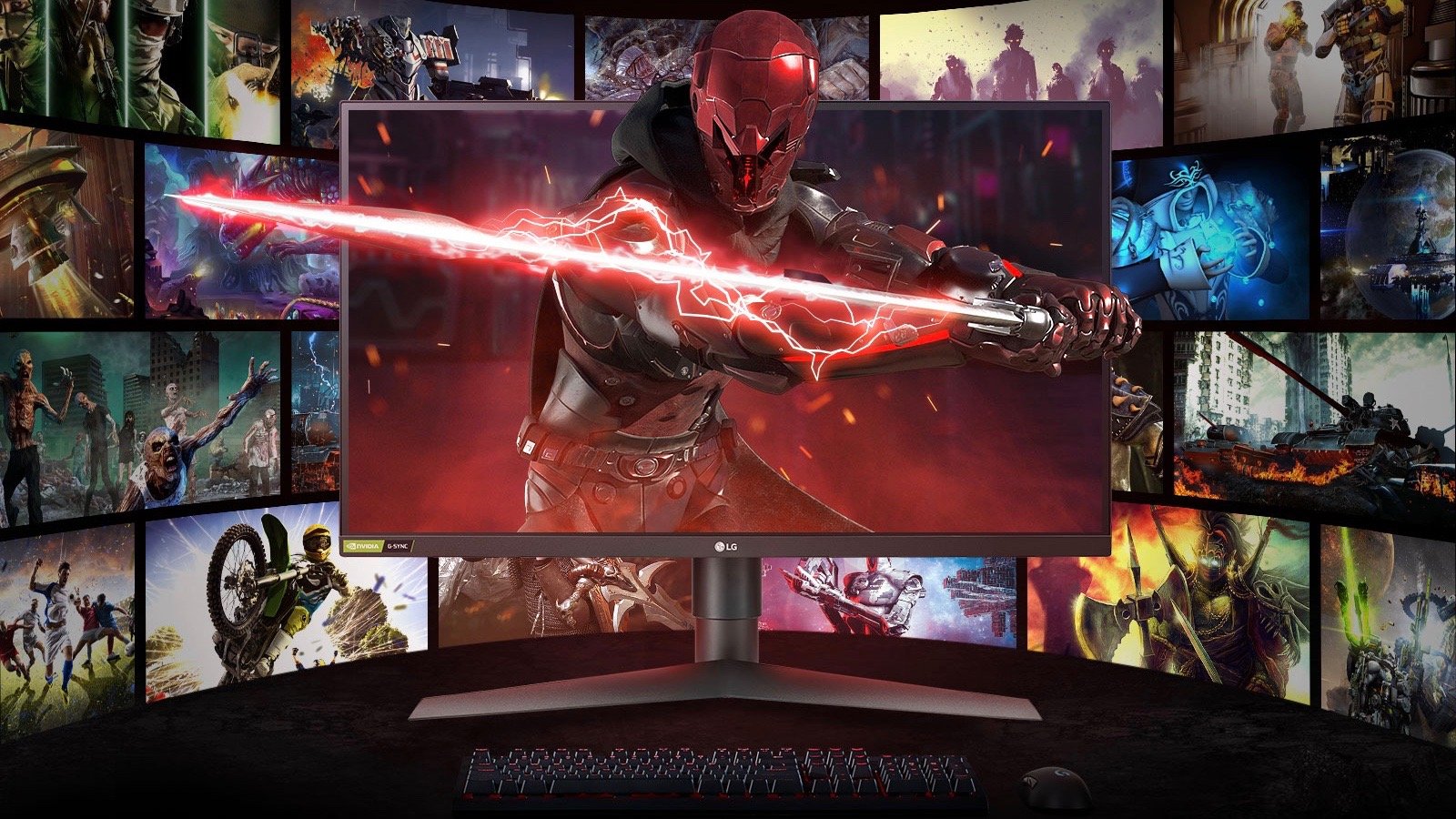
Slightly more affordable than the Razer Raptor, the LG 27GL850-B gaming monitor is no slouch when it comes to specs. Sporting a QHD (2560x1440), 144Hz panel with a 1ms response time, and Nvidia G-Sync support, this LG monitor will easily handle fast-paced, high-FPS gameplay. Like the Raptor, it hits 350 nits of brightness, which allows for HDR400 but not true HDR.
What makes it truly stand out is LG's Nano IPS tech, which allows for fast refresh rates while capturing a wide color gamut. It hits 98% DCI-P3, beating out all the non-LG monitors on this list. If you want a gaming monitor that doubles as a photo editing or business monitor during work hours, this may be your best non-4K option that won't cost you too much. It has thin bezels on three sides, plus the option to tilt, raise/lower, and pivot the monitor for the best viewing angle.
With so many similarities to the Razer and a lower price tag, we could have easily chosen the LG 27GL850-B as the best gaming monitor. Some reports that the LG monitor has some issues with color contrast, particularly struggling with blacks appearing as grays, gave us pause. By comparison, Windows Central found the Raptor outperformed its estimates in areas like brightness and color performance. We also appreciate the Raptor's flashy design with RGB Chroma support and ultra-thin bezels, where the LG design is perfectly functional but more mainstream.
Pros:
- Pro-level color accuracy
- IPS QHD display
- 144Hz
- 1ms response time
- G-Sync and FreeSync compatible
- Good price for specs
Cons:
- HDR400 isn't true HDR
- Potential color contrast issues
Runner-Up
LG 27GL850-B Compatible Gaming Monitor

- $497 at Amazon
- $500 at Best Buy
- $497 at B&H Photo
Rapid response time and a colorful display
The LG 27GL850-B proves you can get 144Hz, 1ms performance while capturing beautiful colors for both gaming and non-gaming.
Best 4K Gaming Monitor: Asus ROG Strix XG27UQ
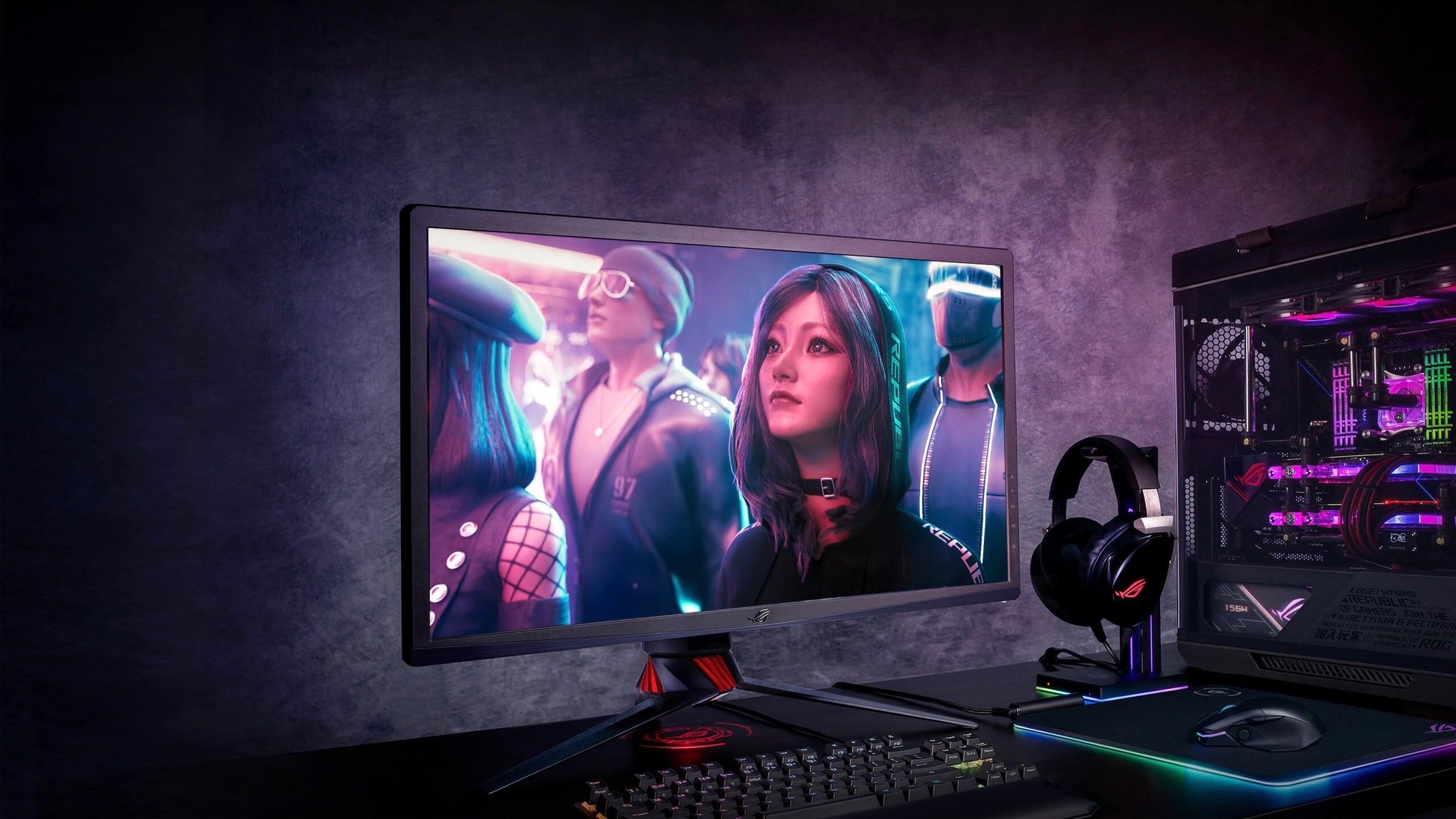
People who embrace the "greed is good" philosophy and won't compromise on either gaming performance, or high resolution should immediately turn their attention to the Asus ROG Strix XG27UQ. Many PC players steer clear of 4K because most of these monitors are stuck at 60Hz — substandard for any fast-paced shooters or beat-em-ups — and often have much slower response times. Yet, the ROG Strix XG27UQ scoffs at compromise and hits the same 144Hz and 1ms response time as other displays with much fewer pixels, using Display Stream Compression (DSC) tech and a DisplayPort cable.
This monitor hits 90% of DCI-P3, which is solid but not quite as colorful as the Razer Raptor. While it's G-Sync and AdaptiveSync compatible, it doesn't support AMD FreeSync if that's your preferred setting. Those nitpicks aside, we love its 400-nit maximum brightness, HDR10 support, 178-degree viewing angle, and unique Asus enhancements like shadow boosting.
The only reason not to buy our best 4K gaming monitor pick is if your PC isn't powerful enough to simultaneously take advantage of 4K graphics and high frame rates. Should your rig live up to the task, however, this may be the best gaming monitor you'll find without an overly bloated price tag.
Pros:
- Extremely fast response time
- 4K resolution
- 125% sRGB color gamut
- Comprehensive controls for calibration and enhancements
- High-contrast Dynamic Dimming mode
- Gaming and Cinema HDR modes
Cons:
- Expensive
- No AMD FreeSync
Best 4K Gaming Monitor
Asus ROG Strix XG27UQ Gaming Monitor
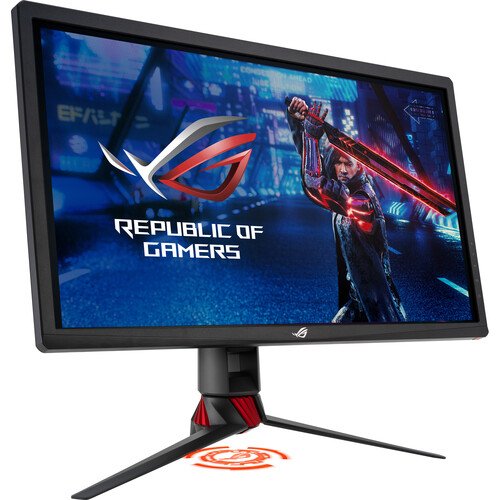
- $1,089 at Amazon
- $800 at B&H
Built for premium PC rigs
If your computer can handle games on the highest settings, the Asus ROG Strix XG27UQ is among the best in the industry.
Best Wide Curved Gaming Monitor: LG 34GN850-B 34"
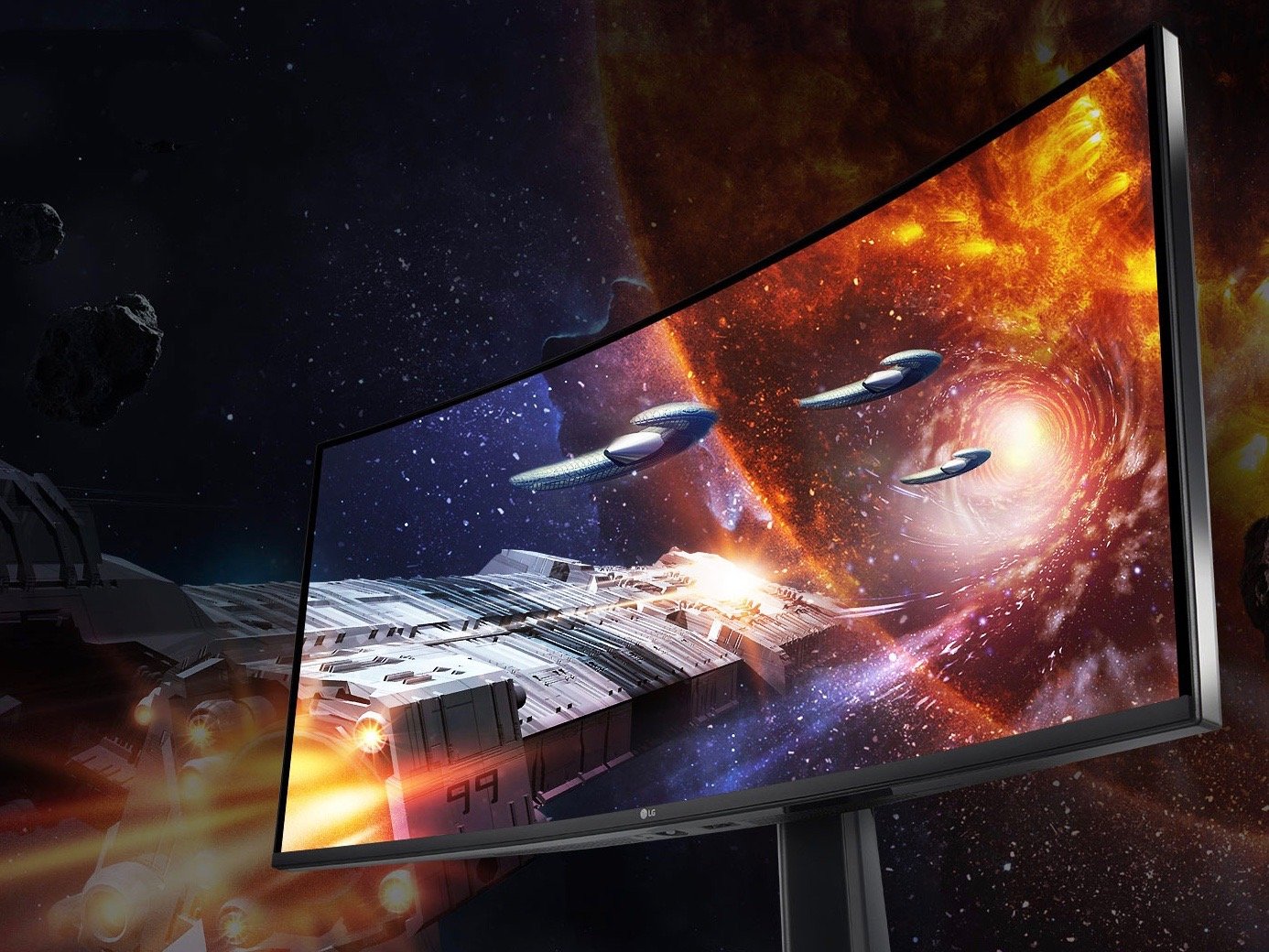
Step out of that restrictive 16:9 prison that most monitors lock you into with this 21:9, 34-inch curved monitor from LG that will give your games a much wider field of view. The LG 34GN850-B not only hits 144Hz and a lightning-fast 1ms, but it can also overclock to 160Hz and works with G-Sync and FreeSync for that extra bit of smoothness.
The LG 34GN850-B also matches the best color performance on this list, thanks to its 98% DCI-P3 color gamut. One small negative is that its 700:1 contrast doesn't quite match its competitors' quality, but it does at least support a luminant 400 nits with HDR400 support. It has the same reliable 178-degree, anti-glare IPS design as our other top picks, but as a curved display, it points back towards the center and won't have quite the same horizontal viewing range. We also appreciate the thin bezels, giving it a near-borderless look.
Most PC games support an ultrawide 21:9 setting, which is truly a game-changer (pun intended). Just be aware that this mode requires a beefier PC to hit the same graphical settings you'd want on a monitor with a standard aspect ratio. But this QHD monitor is excellent for transforming your gaming and giving you a larger, color-accurate productivity space for working at home.
Pros:
- Magnificent color performance
- Stylish curved display
- 34-inch, QHD screen with wide aspect ratio
- Dynamic Action Sync for minimal input lag
- G-Sync and FreeSync support
- Overclocks to 160Hz
Cons:
- Most expensive monitor on our list
- Not the best contrast or HDR for price
- Need a powerful PC to run it
Best Curved Gaming Monitor
LG 34GN850-B 34"

- $997 at Amazon
- $1,000 at Best Buy
- $997 at B&H
The best for ultrawide gaming
Broaden your gaming horizons with this super wide monitor that'll give you a huge space to work with.
Best 1080p Gaming Monitor: Alienware 25 Gaming Monitor (AW2521HF)
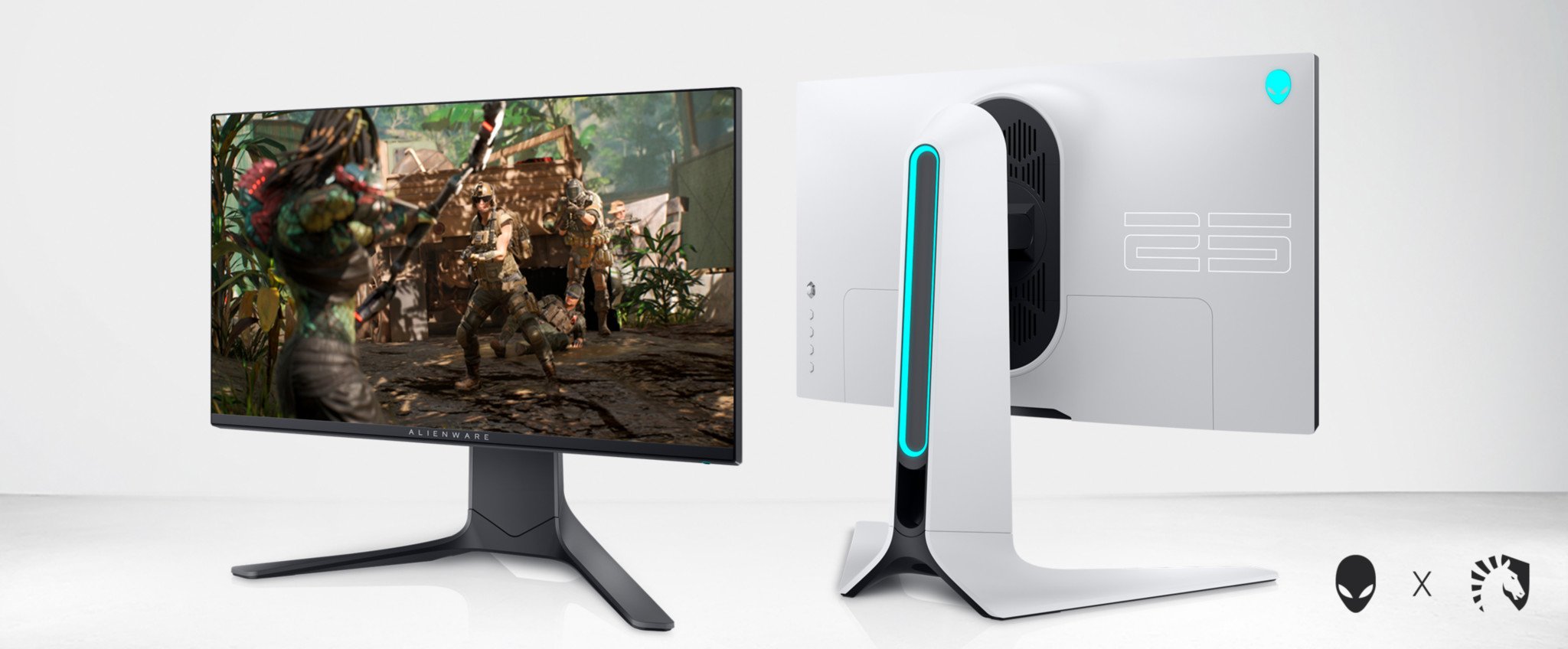
Also, one of our best Dell monitor selections, this 25-inch Alienware monitor is dangerous because it will introduce you to 240Hz refresh rates that make it difficult ever to go back. You might not think your eyes can perceive 240 refreshes per second versus the 144 you'll find on other monitors, but you actually can if you play first- or third-person shooter games with high sensitivity settings. The faster you turn, the more likely you'll see tearing or motion blur, which is all but eliminated with a rapid-fire refresh rate.
To hit this level at an affordable price, that unfortunately means you're stuck with 1080p and a smaller color gamut than other monitors, which you may or may not see as a deal-breaker. However, outside of resolution, you get some impressive specs: 1ms response time, 178-degree viewing angle, AMD FreeSync Premium, and NVIDIA G-SYNC support. Its VESA mount lets you swivel, pivot, or tilt the monitor in virtually any direction, and it even has cooling vents, so hardcore graphics don't make it run hot.
Pros:
- Extreme refresh and response rates
- 178-degree IPS screen is rare for 240Hz monitor
- AlienFX customizable RGB lighting system
- Versatile, movable mount
- Exhaustive range of ports and slots
- 400 nits of brightness
Cons:
- Only 1080p resolution
- Not a wide color gamut
Best 1080p Gaming Monitor
Alienware 25 AW2521HF 24.5 inch Gaming Monitor

- $350 at Dell (Dark Side of the Moon)
- $350 at Dell (Lunar Light)
- $322 at Amazon
Synchronize your graphics card and monitor
The Alienware 25 Gaming Monitor gives you near-instant refresh rates and minimal lag for fast-paced games at a reasonable price.
Best Cheap Gaming Monitor: AOC 27G2 (27-inch)
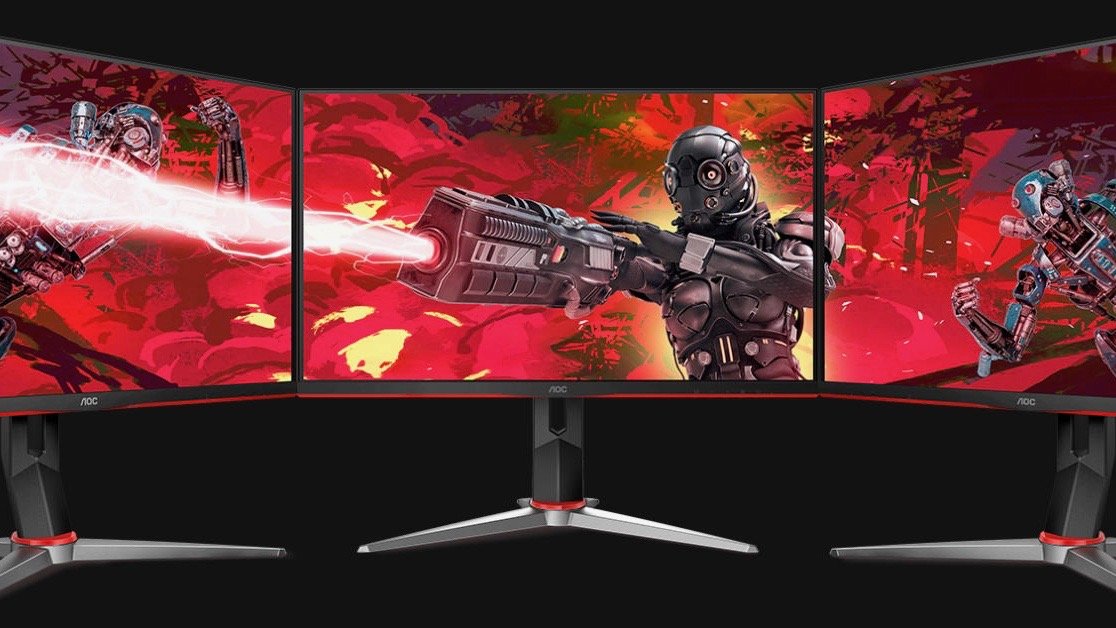
We're directly contrasting the AOC 27G2 27-inch monitor with the Alienware AW2521HF 25-inch monitor above. Both are 1080p monitors with similar strengths and weaknesses, but the AOC model is nearly half the price, making it a more attractive option for gamers with limited budgets.
Its 144Hz refresh rate may not be quite as smooth as Alienware's 240Hz speedster, but 144Hz is the community standard that most non-professional gamers live with happily, so you likely won't know what you're missing. Plus, AOC works with G-Sync, FreeSync, and AdaptiveSync for boosted framerate performance. Each monitor hits a low of 1ms, has a 1000:1 contrast ratio, and supports 16.7 million colors — which sounds much better than it looks. Both have attractively tiny bezels and identical IPS viewing angles.
Where the AOC 27G2 27-inch monitor falls short is in its refresh rate, brightness (250 nits vs. 400 nits with Alienware), and ports. While both monitors have two HDMI, one DisplayPort, and a headphone jack, AOC lacks the five USB 3.0 ports and audio line-out for connected speakers. If you can live with the darker display, standard Hz, and wireless or Bluetooth speakers, however, then this cheaper monitor may be a better option for you.
Pros:
- Affordable price for good specs
- 144Hz and 1ms
- G-Sync, FreeSync and AdaptiveSync
- 1000:1 contrast ratio
- Stylish, bezel-less design
Cons:
- Low typical brightness
- Not as many ports as other picks
- Only 1080p display
Best Cheap Gaming Monitor
AOC 27G2 (27-inch)
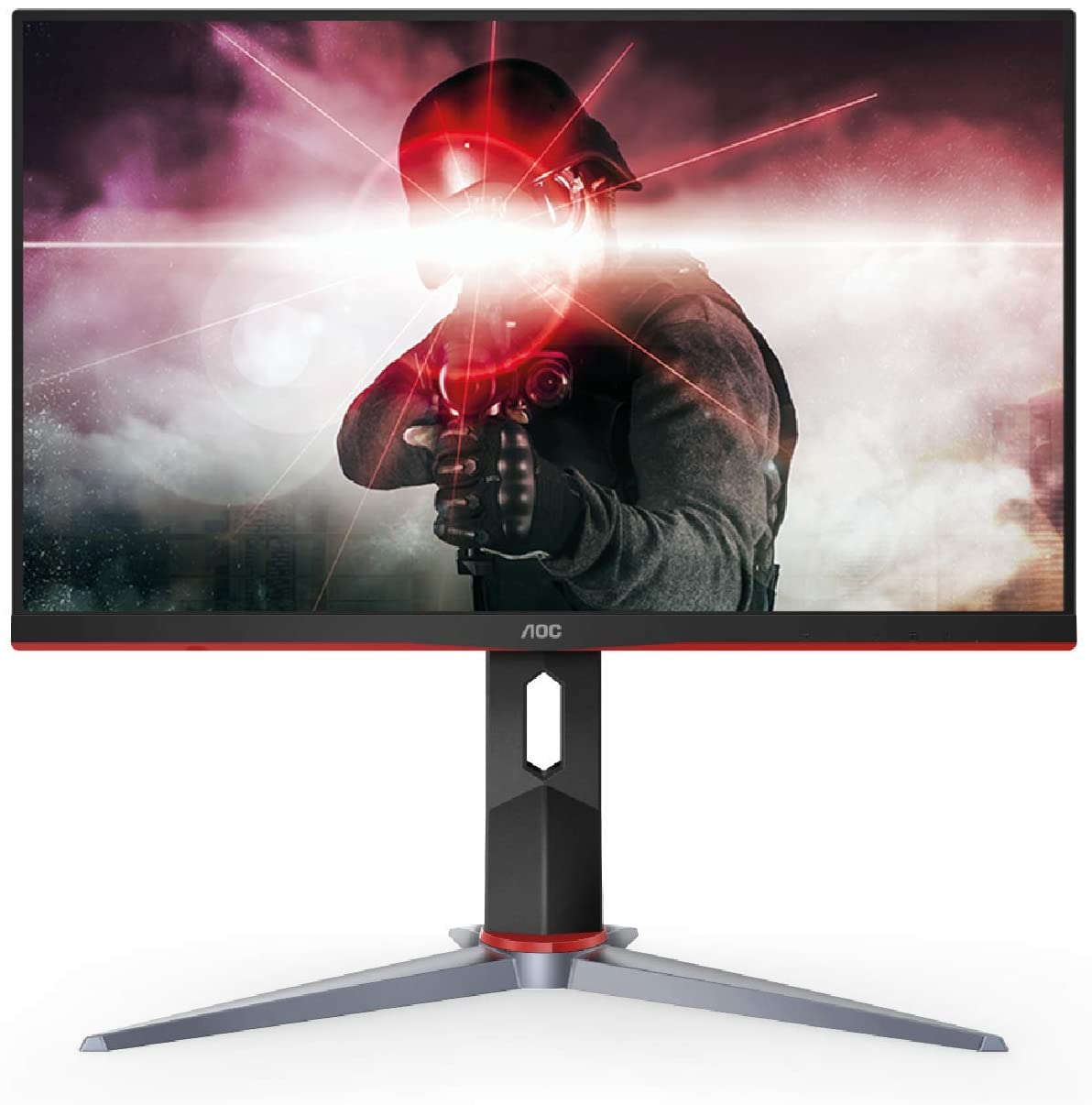
- $210 at Amazon
Save your money for games
The AOC 27G2 is one of the best gaming monitors for frugal gamers seeking solid online play performance.
Best Mid-Range Monitor: BenQ EX2780Q 144Hz Gaming Monitor
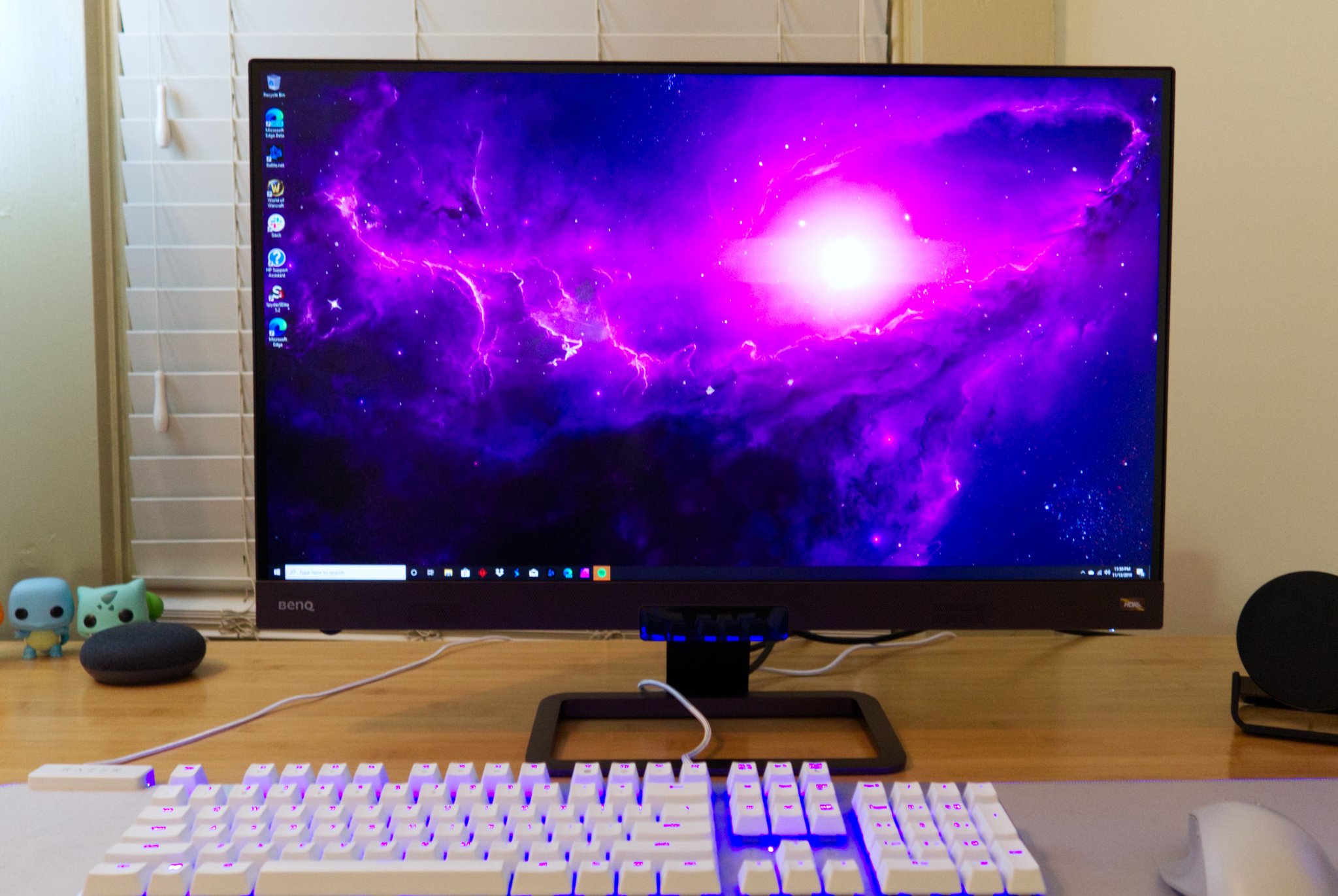
For a 27-inch QHD gaming monitor that offers excellent specs without rising to the more expensive price range of our favorite Razer and Asus monitors, we're fans of the BenQ EX2780Q 144Hz Gaming Monitor. It brings some features that our other top picks neglected, such as a built-in 2.1ch speaker system with subwoofer that our sibling site Windows Central called the "best set of built-in speakers I've heard on a monitor to date" in their review.
The BenQ EX2780Q is also one of the few monitors with a USB-C port, enabling DisplayPort Alt and allowing you to sync and charge your laptop simultaneously. Beyond that, it features HDRi technology, which is essentially HDR400 but adds in a light sensor that tracks your room's brightness and adjusts the brightness of the display accordingly, helping to reduce eye strain during long gaming sessions.
Plus, this BenQ model has the specs we've come to expect in a reliable gaming device: standard refresh rate, 109 PPI, 178-degree anti-glare IPS screen, 350 nits of brightness with 1000:1 contrast ratio, and an excellent 95% DCI-P3. Our primary negative is the 5ms GtG response time, definitely not a bad number but a higher lag average than our other picks.
Pros:
- Budget-friendly 2K monitor
- 95% DCI-P3
- Room-sensing variable brightness
- USB-C port
- Rich speaker and sub performance
Cons:
- 5ms input lag
- Basic, immovable stand
Best Mid-Range Monitor
BenQ EX2780Q 144Hz Gaming Monitor
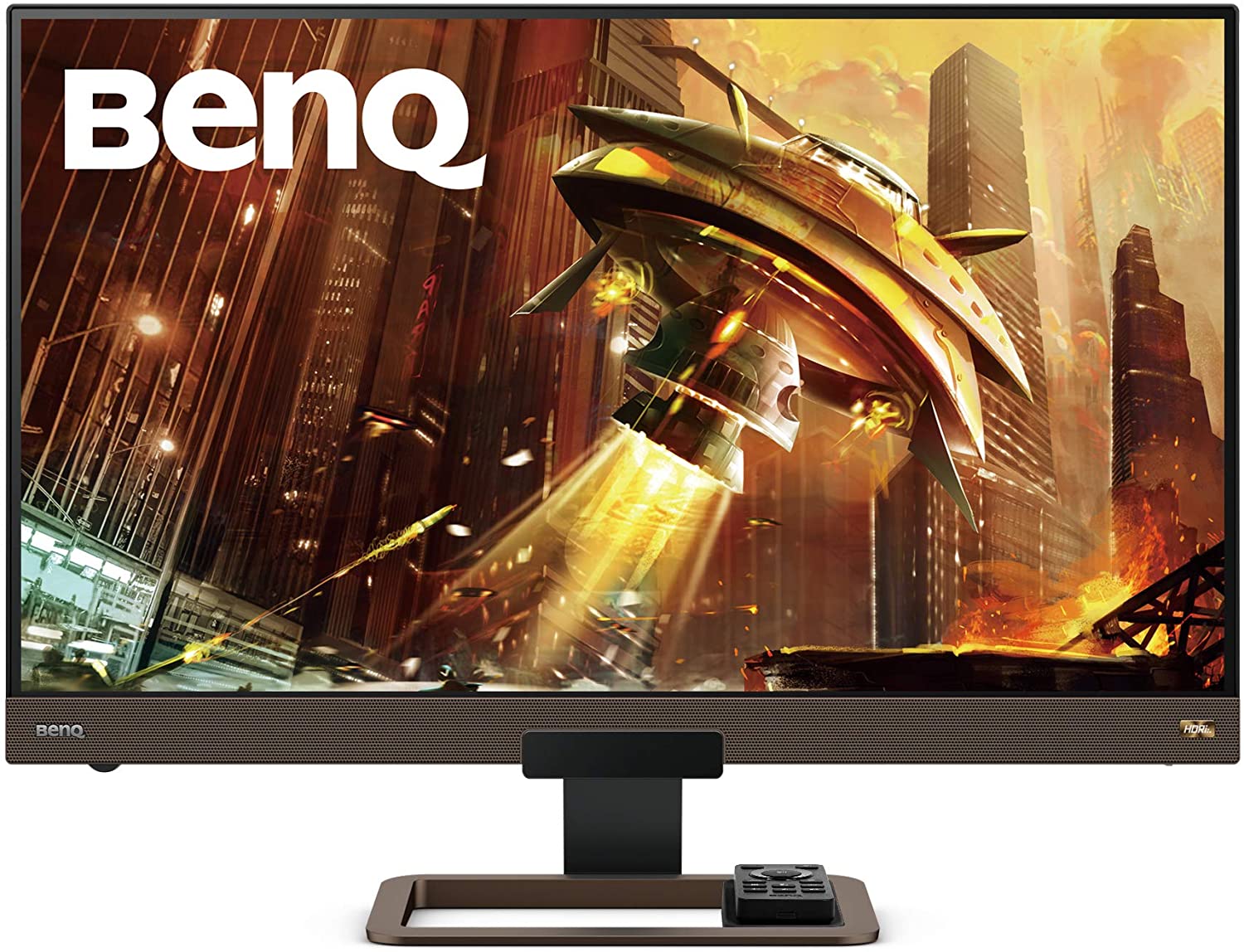
- $450 on Amazon
- $450 on B&H
Save money on speakers
With the BenQ EX2780Q, you get a smart display with beautiful visuals and audio packed into a decently priced machine.
Bottom line
We can't peek into your office or gaming den and see what kind of PC gaming rig you have now or ask you what kind of games you typically play. Many of our top picks come with multiple preset modes based on your favorite game genre. Still, each device's core maximum specs will ultimately dictate how well it performs with minimal lag or tearing, as well as how things look once you close your gaming software and open up other work programs.
We personally believe that 2K monitors are the perfect starting point for gamers — see this Windows Central 1080p vs. 2K vs. 4K breakdown for more information on how to choose — and that the Razer Raptor 27 specifically represents one of the best gaming monitors available today. Along with its top-class specifications, it gives you multiple customization profiles to switch through from one game genre to the next and has a USB-C port for charging or laptop gaming.
With your monitor picked, your problems with lag may not be over, unfortunately. So check our guide for how to reduce lag in PC games to make sure your monitor's performance can match its potential. Then, take a look at our PC accessories guide to pair your monitor with the best keyboard and mouse designed for gamers.
Credits — The team that worked on this guide
![]()
Michael Hicks got his tech start in 2016, covering emerging tech like VR and self-driving cars before expanding to all things tech. When he's not gaming or reading SFF novels, he writes freelance for Android Central and Windows Central.
10/04/2021 07:00 PM
Redmi Smart TV X65 review - Big, bold, affordable
10/04/2021 08:00 AM
Recommended Reading - Painful memories the algorithms won't let you forget
10/04/2021 04:00 PM
WWE WrestleMania 37 live stream - How to watch without extra PPV fees now
10/04/2021 11:00 AM
How to watch the 2021 Grand National - Live stream the big race online
10/04/2021 07:00 AM
Firefox will soon stop supporting Amazon Fire TV and Echo Show devices
10/04/2021 02:10 PM
Sony May Be Working On An Xbox Game Pass Competitor For PlayStation
10/04/2021 12:47 AM
Google is about to improve voice calls on more apps with its new codec
10/04/2021 12:56 AM
How to watch Real Madrid vs Barcelona - Live stream El Clásico online
10/04/2021 10:00 AM
- Comics
- HEALTH
- Libraries & Demo
- Sports Games
- Racing
- Cards & Casino
- Media & Video
- Photography
- Transportation
- Arcade & Action
- Brain & Puzzle
- Social
- Communication
- Casual
- Personalization
- Tools
- Medical
- Weather
- Shopping
- Health & Fitness
- Productivity
- Books & Reference
- Finance
- Entertainment
- Business
- Sports
- Music & Audio
- News & Magazines
- Education
- Lifestyle
- Travel & Local







